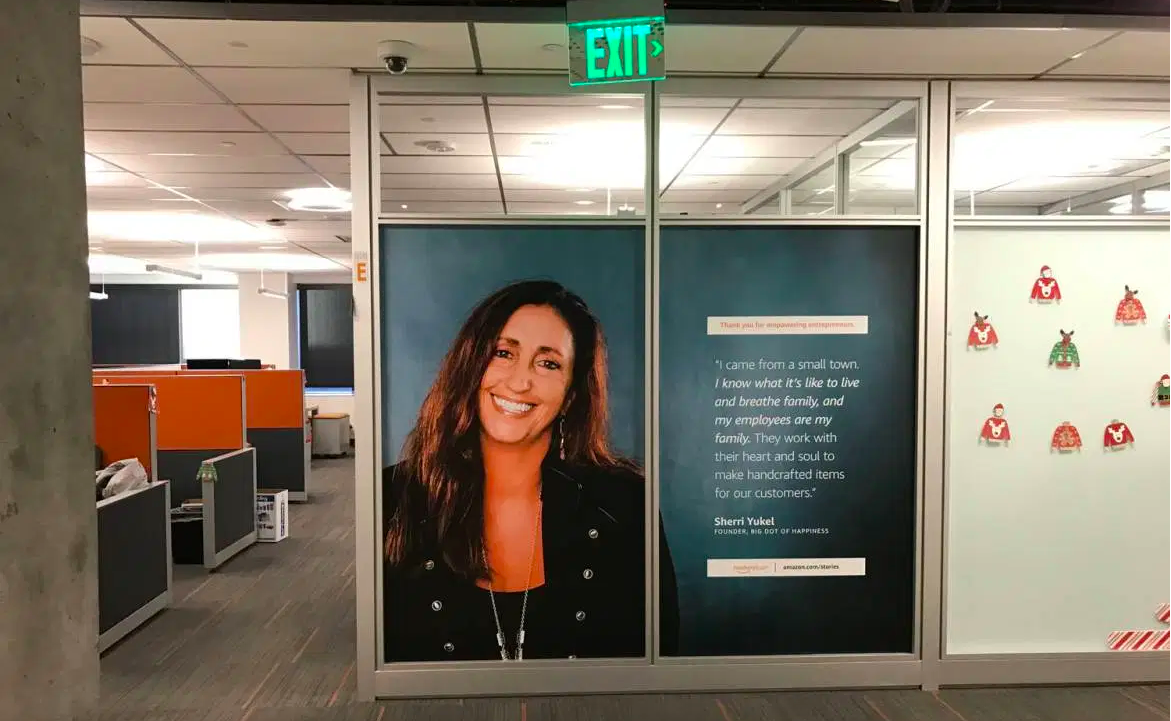Contents:

The World of Insect Edibles | Trends by The Hustle
What you need to know
- Despite a stigma, as much as 80% of the world already eats insects. That number is expected to grow as people turn to insects because of their high protein content and relatively low environmental impact.
How you can capitalize
- Education and Marketing: If brands are able to smash through the stigma, they will be able to create an exponentially larger market.
- New product lines: Companies that create new arenas for bug grub will find an unsaturated market.
- Entertainment: Ever heard of Wine and Bug Tastings? They exist.

Remember when lobster was a “poor man’s food”? How times have changed. Because of their high protein content and low environmental impact the candidate for the “next lobster” may be surprising: insects.

How to Capitalize on the New Blue Collar Industry | Trends by The Hustle
What you need to know
- Blue collar jobs are in high demand, but positions are going unfilled because of a reticence among younger job seekers to enter the industry.
How you can capitalize
- By using technology to make blue-collar jobs more appealing and to create better communication between clients and blue-collar vendors.
- By creating a modern online training platform for various trades, similar to Codecademy or Treehouse for coding. Or marketing a trades-related boot camp geared toward a younger audience.
* * *

Cannabis Business: How Revelry Supply Became a Million-Dollar Brand
Sometimes you just want to keep other people from smelling your stuff. Enter Revelry Supply. Based in Santa Cruz, CA, the lifestyle cannabis business makes odor-absorbing luggage — duffels, backpacks, personal bags, etc. — aimed at cannabis users.
The idea for the company was hatched in 2014, and Revelry Supply started selling luggage in 2015. In its first full year, Revelry Supply made about $700k. Since then, revenues have steadily increased, and the company is on track to make ~$2m this year.
With lawmakers passing cannabis-friendly legislation and plans to diversify further into the cannabis lifestyle market, co-founder Brandon Stewart says Revelry Supply expects major gains in the next few years.

Tiny Things: Honey, I shrunk everything | Trends by The Hustle
We started exploring tiny things by sharing a single Signal: miniature cooking sets. We’ve now gone all-in on the tiny business, and found that it’s not just the miniature cooking set–it’s tiny 🏡, tiny 🎂, tiny 🌵, and just about tiny everything. We teased out over 50 tiny products and whether they’re on the 👍 or 👎.
Check out the full deck or continue reading to see how people are utilizing Youtube to capitalize on “tiny” trends––from miniature cooking to miniature creations–and how you can get in on the surprisingly unsaturated market.
Want the tiny version? Check out this spreadsheet.
Tiny Everything
- There is a niche trend of people purchasing tiny things–not for their kids, but for their own enjoyment.
- From tiny cooking supplies to miniature zen gardens to tiny Nutella jars, people are seeking out miniature-sized items.
- Some are capitalizing by selling these items digitally, while others are using the power of social media to build channels around this trend.
Paying Premiums

The A to Z of XaaS | Trends by The Hustle
Software as a Service (SaaS) businesses have commanded unprecedented attention in recent years. The glamorized business model has produced many winners, thanks to its high margins and recurring, predictable revenue. Pair that with the flurry of SaaS businesses that have hockey-stick growth and you get businesses trading at 10x revenue.
Many of the most successful companies deliver software as a service as part of their business, including Google, Microsoft, Slack, Adobe, Atlassian, and thousands of others.
But in recent years, innovators have asked the question: Why only software as a service? Why not take elements of this disruptive model and extend it to other offerings? That’s exactly what the industry has spawned under a new umbrella term: Anything as a Service (XaaS).

Longtime VC Stuart Rudick: ‘The biggest opportunity today is water’ |
Stuart Rudick, founding partner of the VC firm Mindfull Investors, has long been an early adopter. When he was bar mitzvahed at 13 his father asked him what he wanted to do with the $2k he had been gifted. “I said, ‘I want to invest it,’” Rudick recalls.
But it was a bear market, and Rudick learned from his quick losses to pay closer attention to undervalued assets. After college, he rose quickly at Bear Stearns and then in 1983 started his own investment firm, Mindfull Investors. The firm’s mission was ahead of its time: investing in companies that promote health and wellness and those that have leaders who believe in health and wellness.
Rudick’s investments have included Earthlink.net, Muse, which makes brain-sensing headbands for meditation purposes, the organic food company Urban Remedy, and “clean greens” company Organic Girl. He hasn’t been perfect: Mindfull was also a key investor in the failed blockbuster juicing startup Juicero (known as the “greatest example of Silicon Valley stupidity”).

Inside Pitchbook's Q3 Venture Capital Report | Trends by The Hustle
Pitchbook recently released their quarterly venture monitor report. The 37-page report is full of insight, so we pulled out the key points for you here. (You’re welcome!)
Note: Data for this report is US-specific
Overview
- Deal value will likely stay above $100b for the second year straight.
- Total VC investment slowed in Q3.
- Deal size still remains elevated. Megadeals ($50m+) still dominate and are set to hit a new record in 2019.

Making Sense of the Inc 5000 | Trends by The Hustle
Every year, Inc. releases its popular list of the fastest-growing, privately-held companies. The list started as the Inc. 100 back in 1979, but has grown to more than 5k listings in recent decades.
When companies are featured on “the 5000,” they often see sales spike and press mentions pick up, but what does the list mean for the rest of us? We decided to find out.
We broke down all 5,000 rows of data to discover what cloth these companies were cut from. Our analysis allows you to pick your own adventure: filter the data based on your own needs, or glean insight from the learnings we’ve laid out.

The Diversity Windfall | Trends by The Hustle |
What you need to know:
- Businesses with the most ethnic diversity and gender diversity outperform their peers by 33% and 21%, but many industries struggle with finding and hiring diverse talent.
How you can capitalize:
- Create a service that matches skilled workers without gender or racial bias in a specific industry. With a proprietary algorithm that helps eliminate bias for the hiring of temp and gig-worker jobs, Tilr is on pace to make $10m in its 4th year of business. In addition to matching potential employees with clients, Tilr also handles training, payments, and other related duties.
- This table from the US Bureau of Labor Statistics indicates the racial and gender diversity of more than 100 industries, offering hints of diversity gaps where entrepreneurs could get involved. Among the least diverse industries: construction, media, and law.
* * * * *

Step-by-Step: How Design Firm GBPro Doubled Revenue to $448k within 4 Years | Trends
If you visited Seattle in the last couple years, you may have seen the wall-size posters of entrepreneurs featured throughout the Amazon Marketplace. They were commissioned by Amazon and designed by a company called GBPro.
GBPro’s other clients include Alaska Airlines and Veyep Sports, the official speaker supplier of Major League Baseball. The company, which features three total employees and two contractors, is in its fourth year of business. It made $448k in revenue in its most recent fiscal year — up from $250k in year one.
Our Trends community has asked for more actionable insights on how to build companies, and this is our first stab at providing that. It’s a step-by-step guide for how GBPro founder/CEO and creative director Greg Brumann started his business and turned it into an early success.